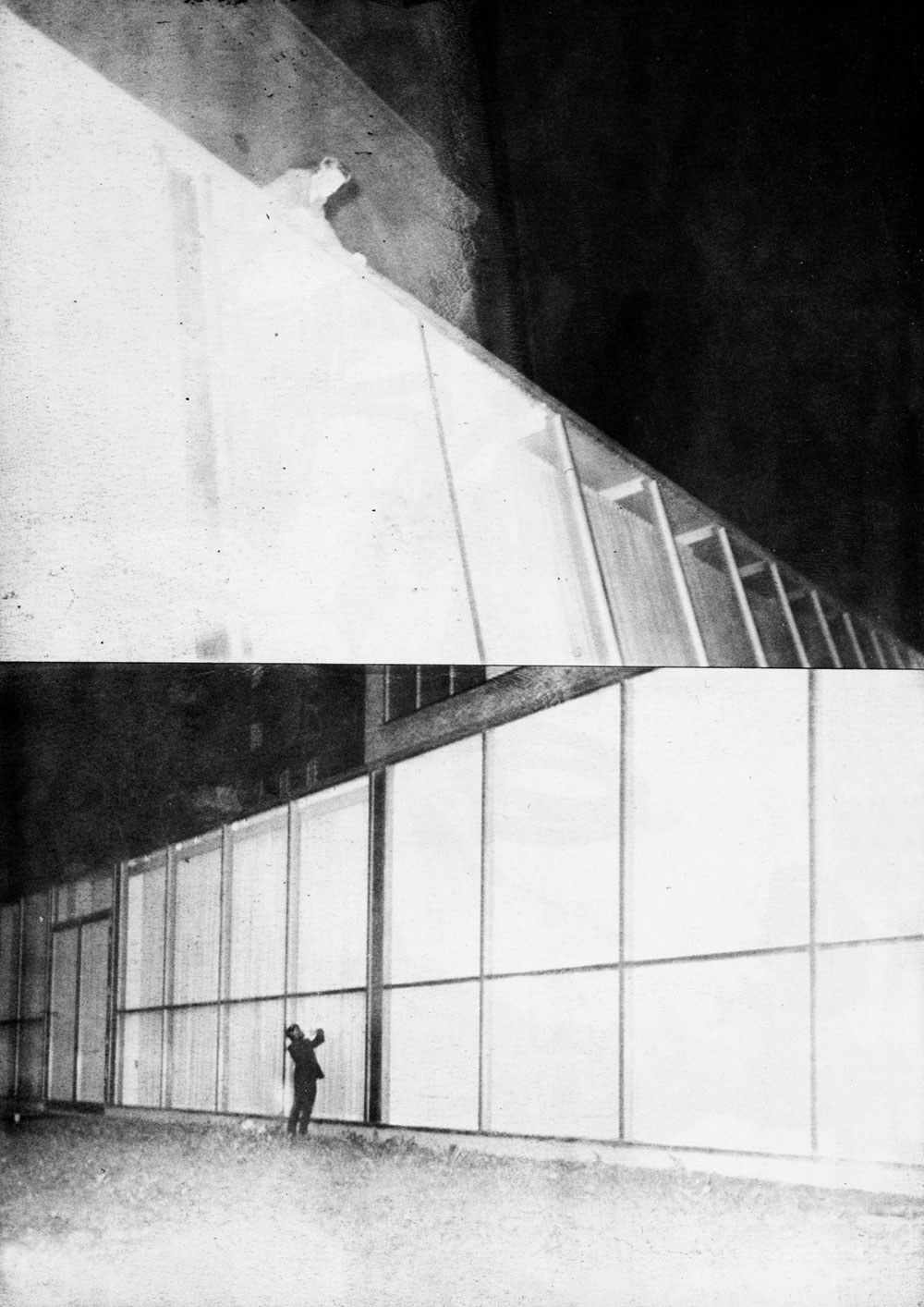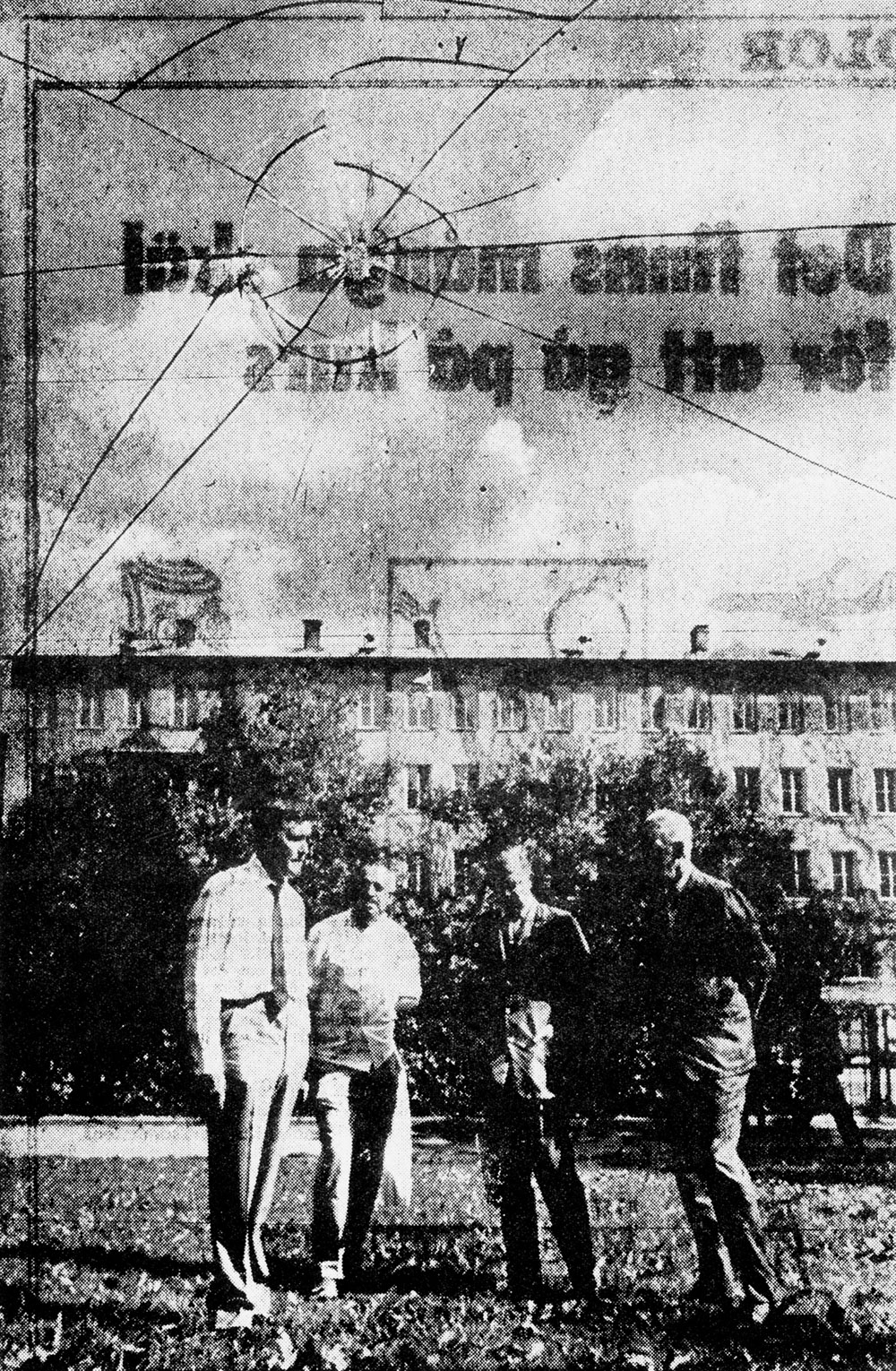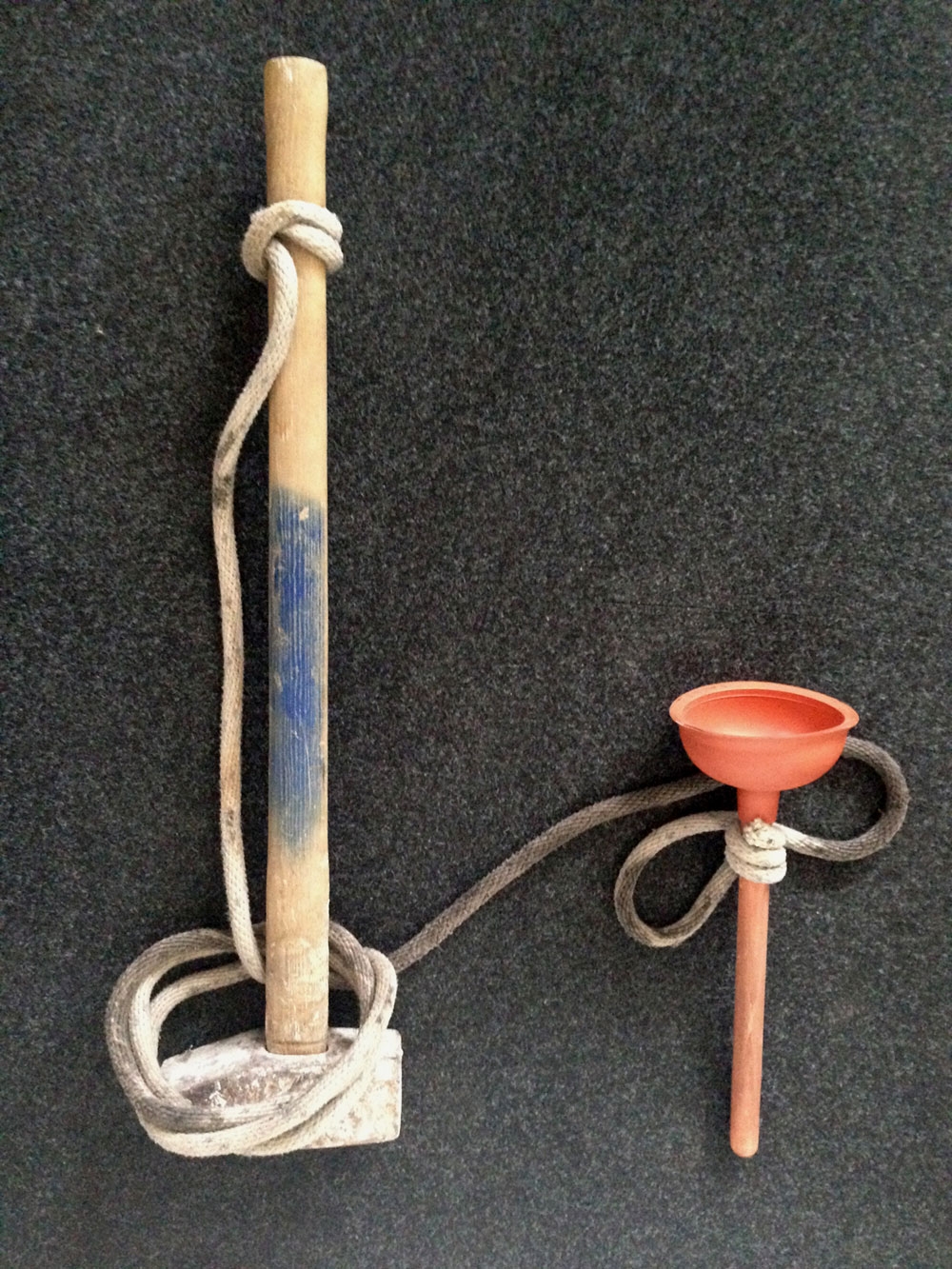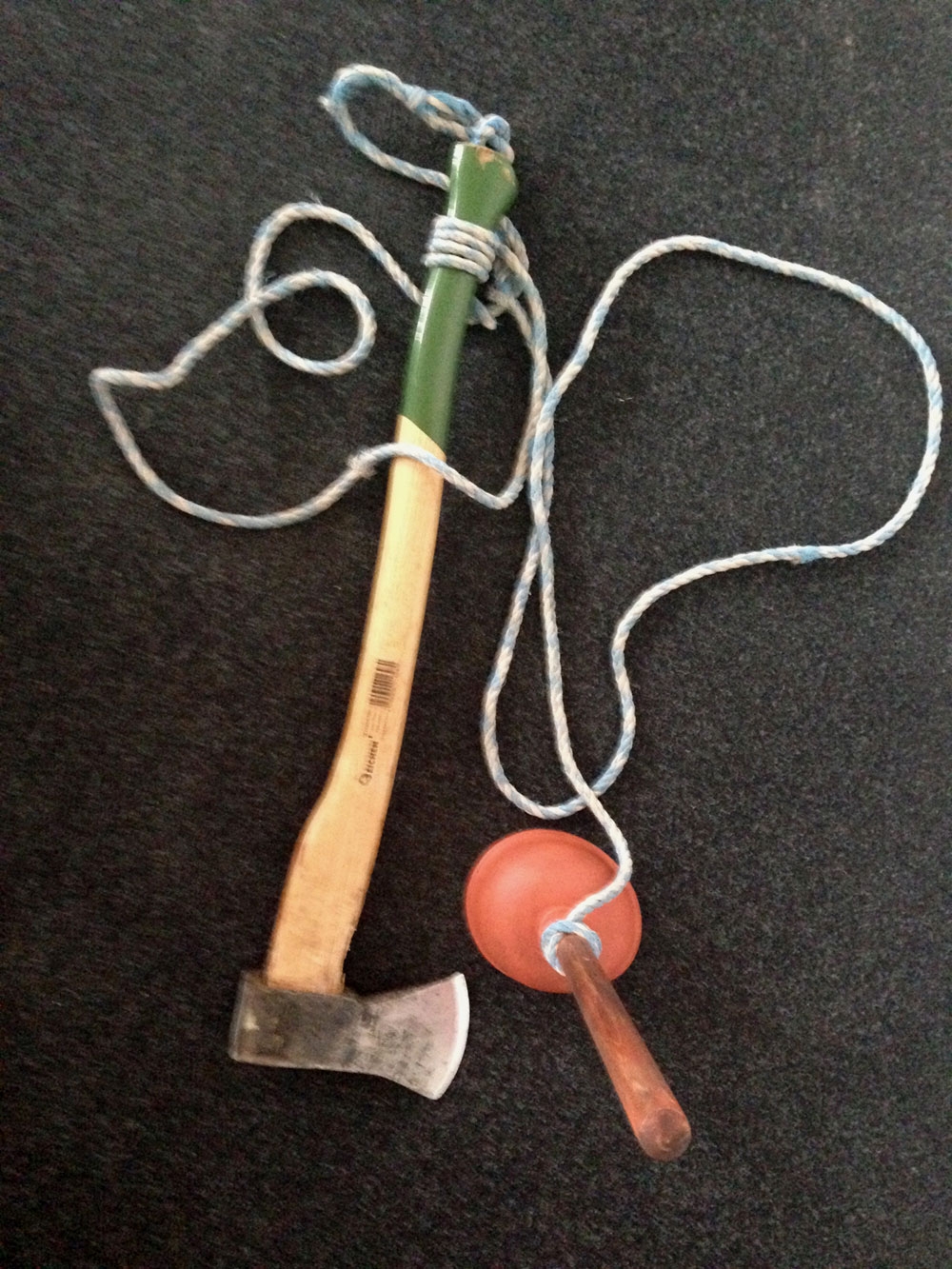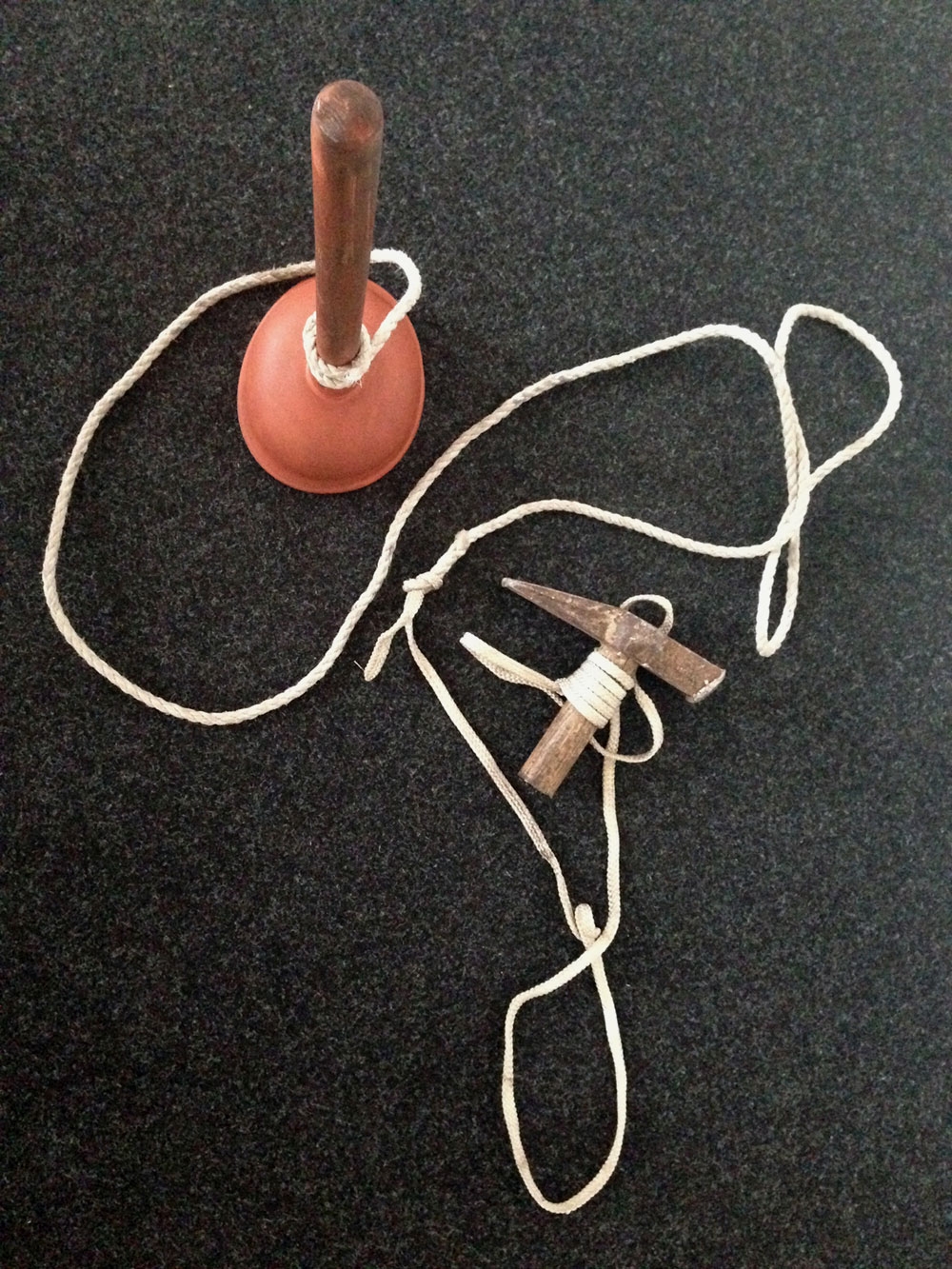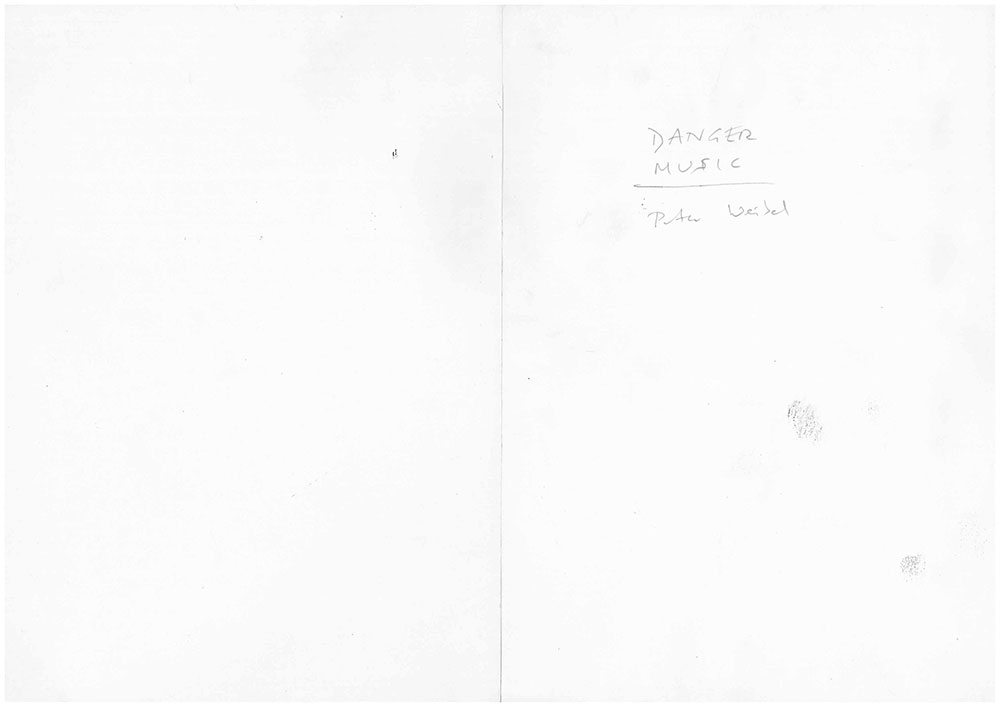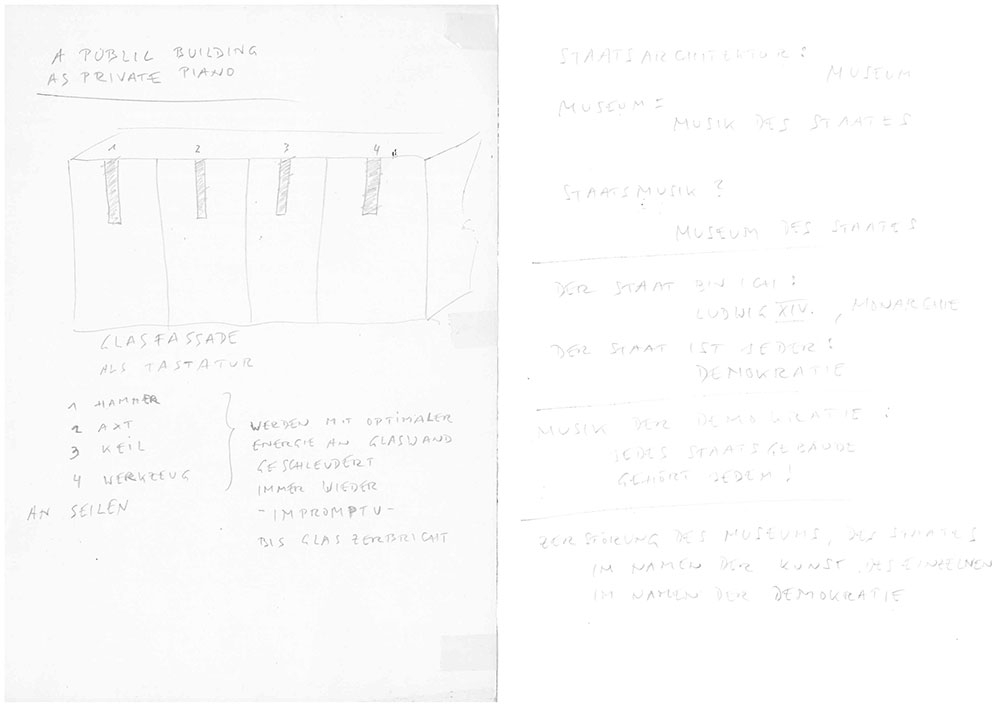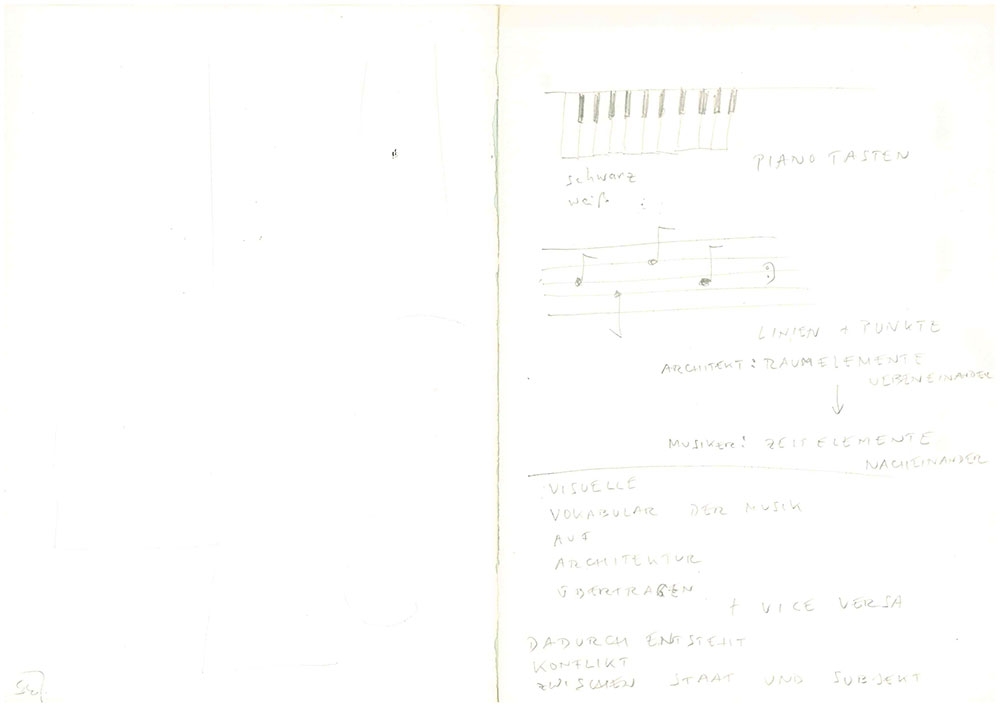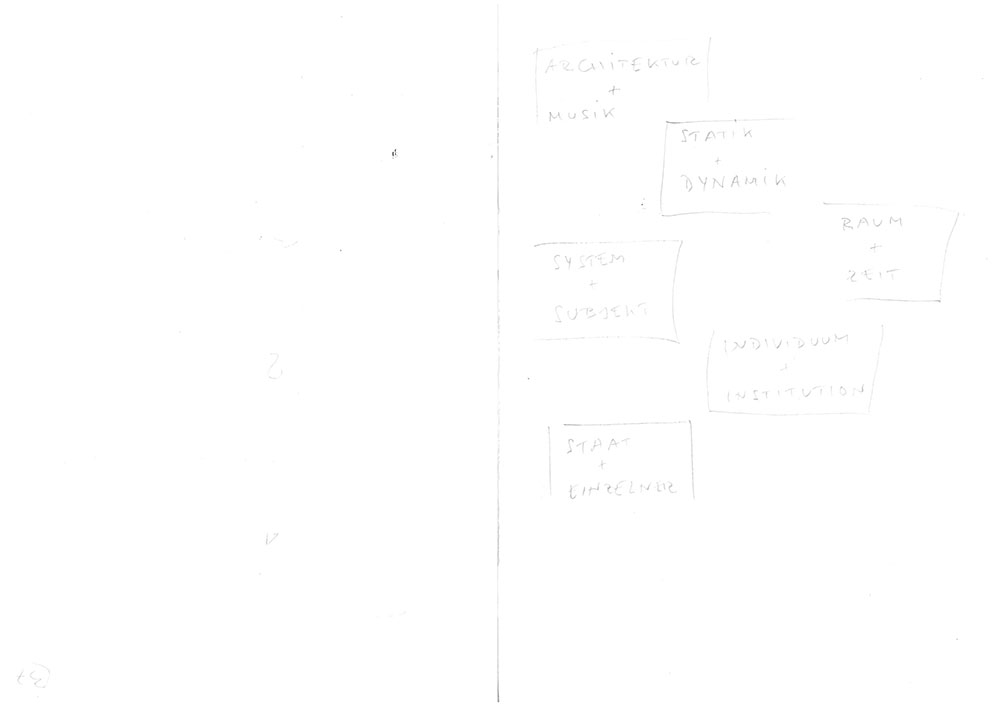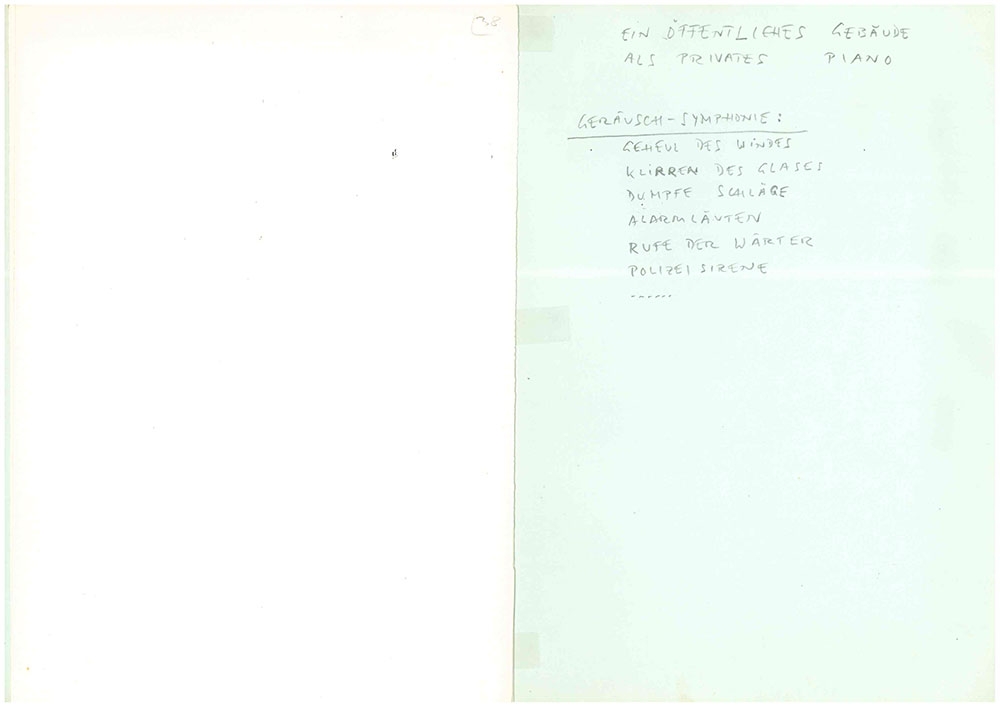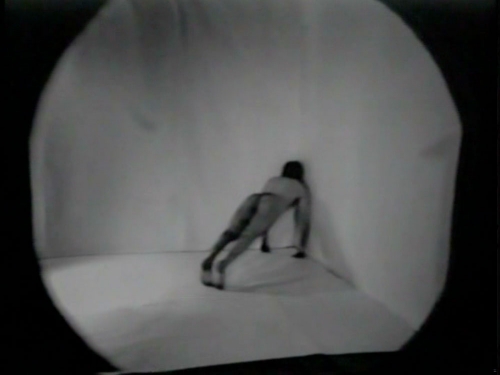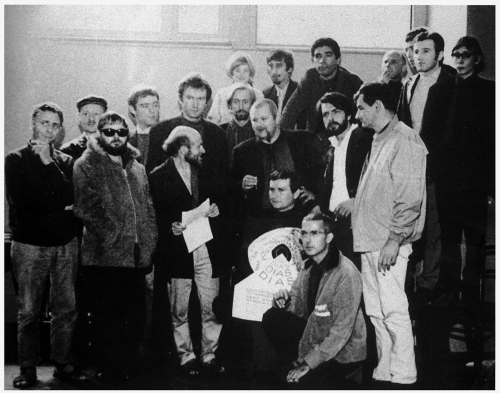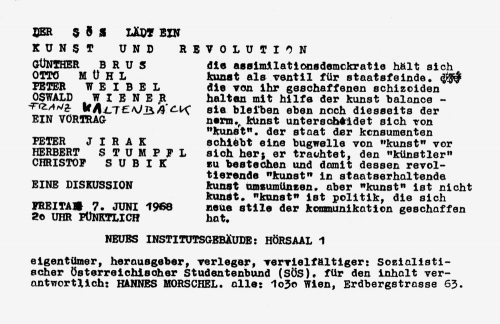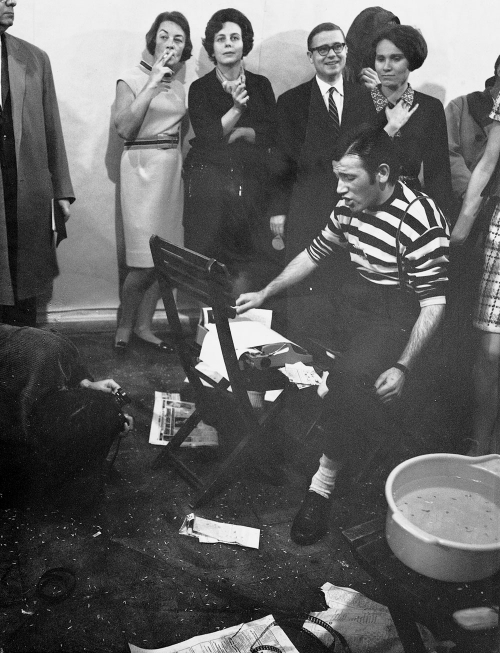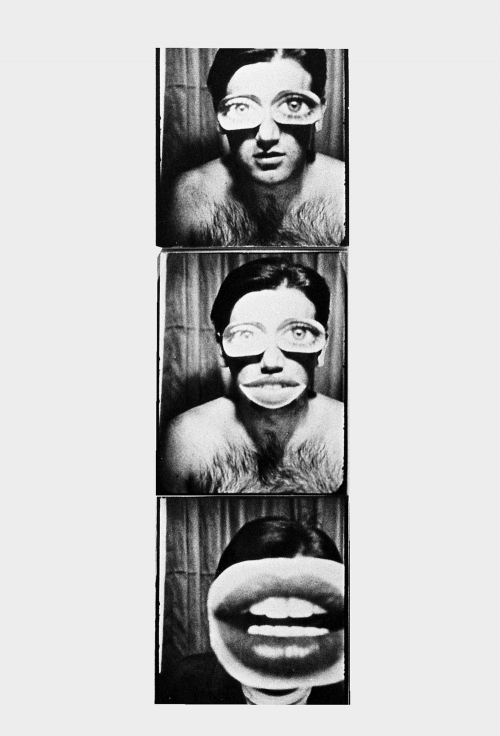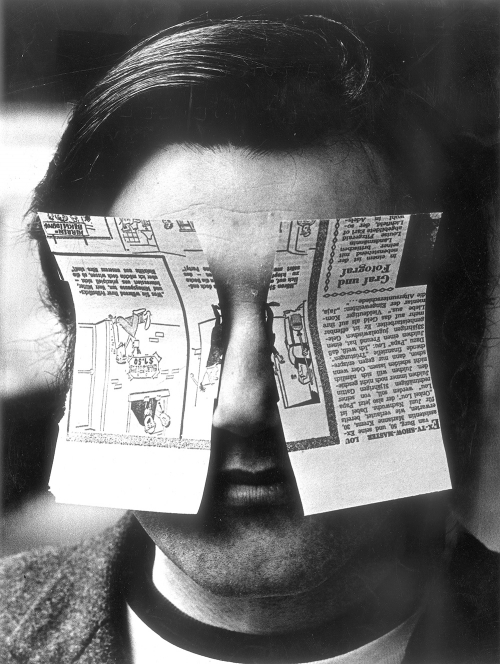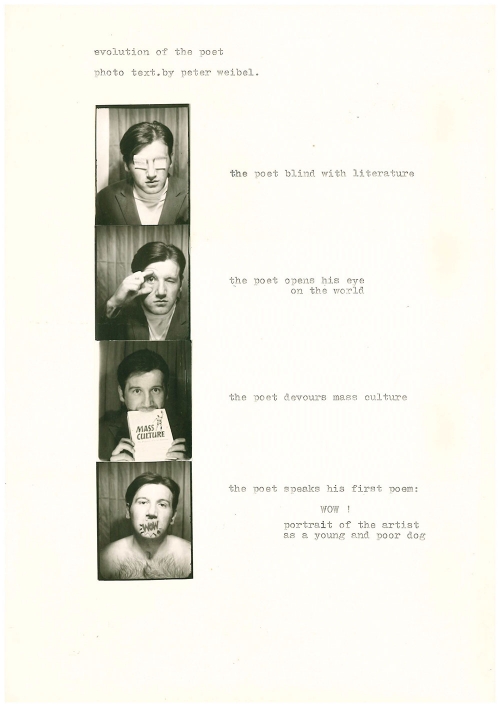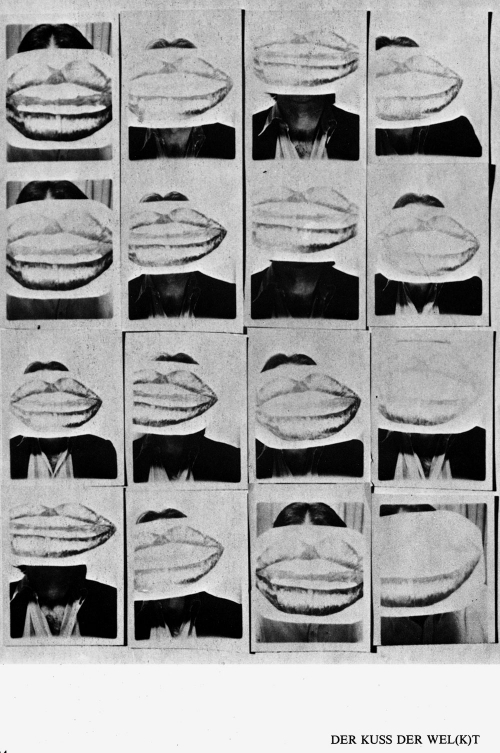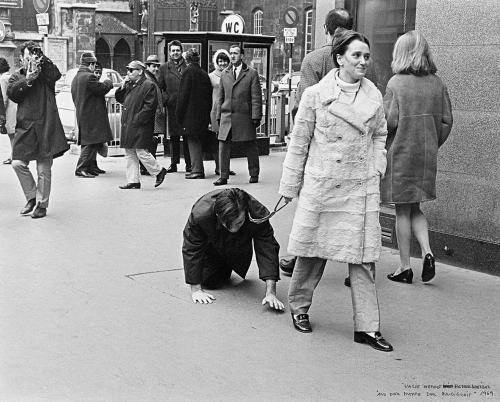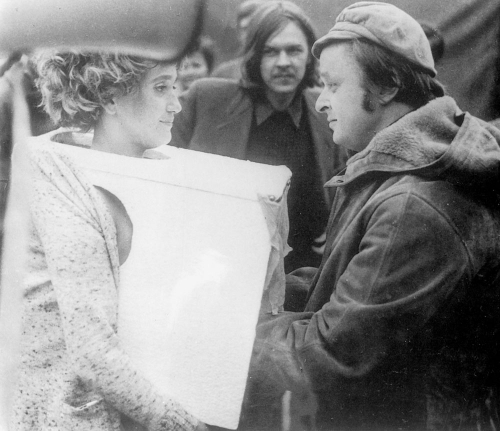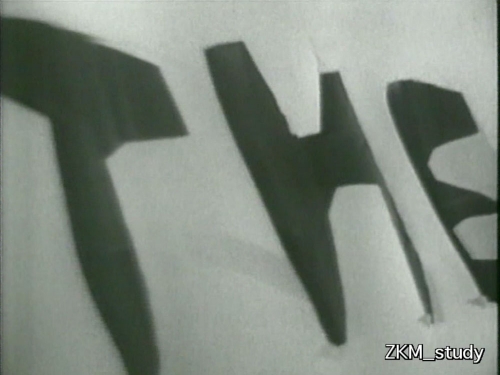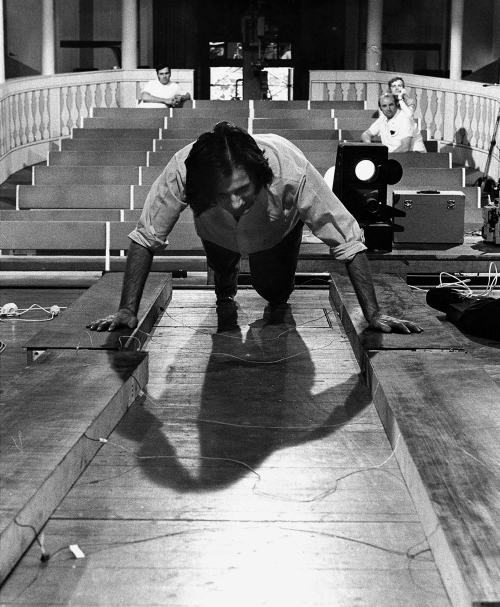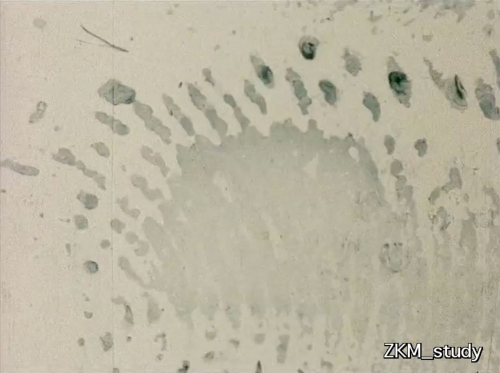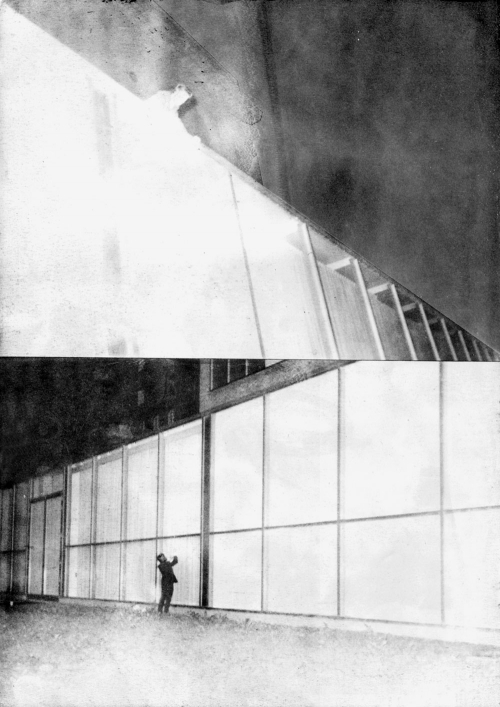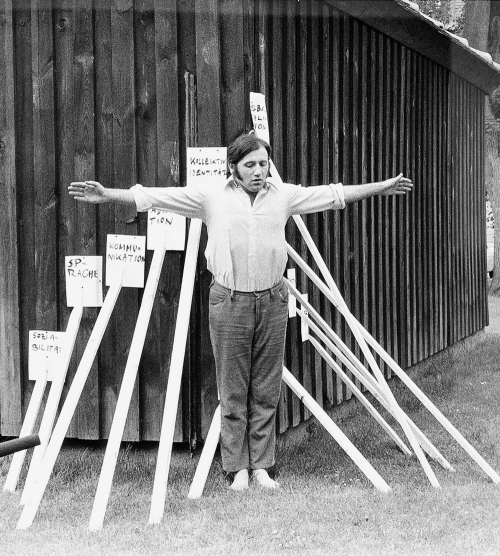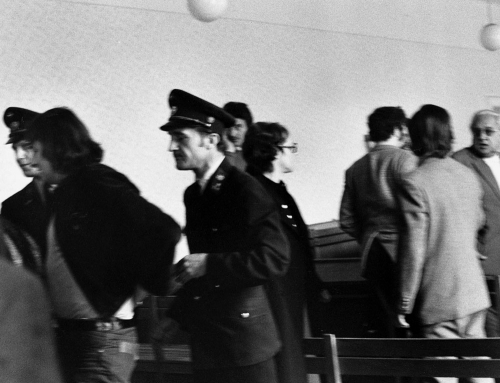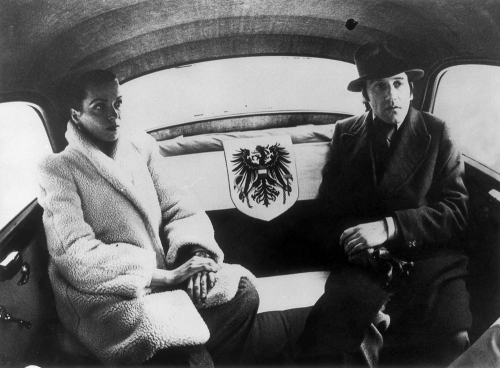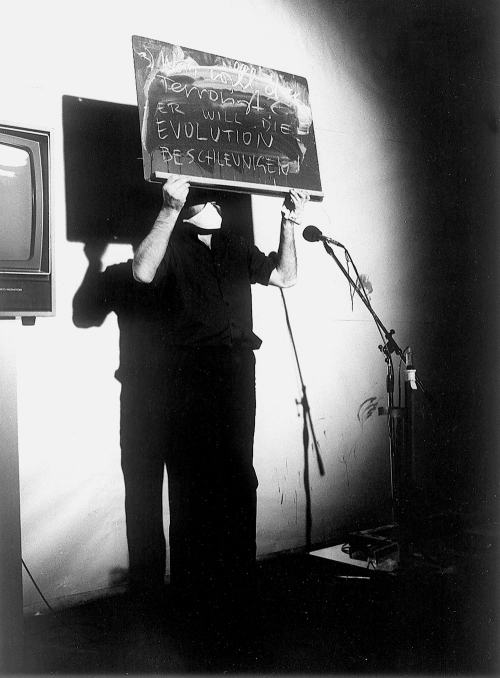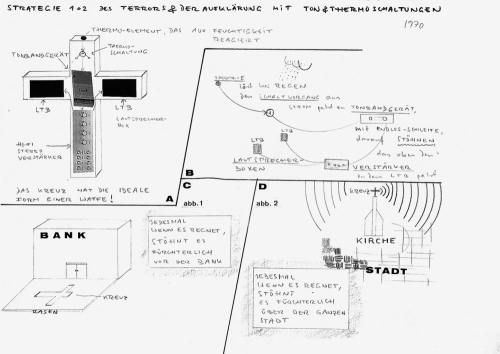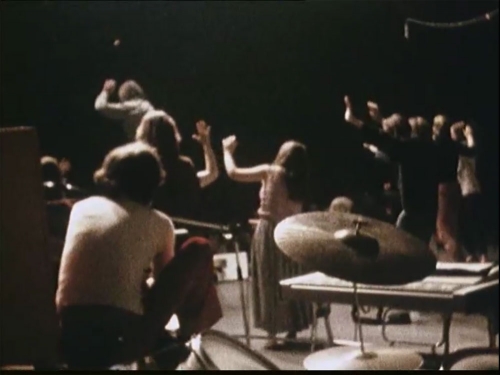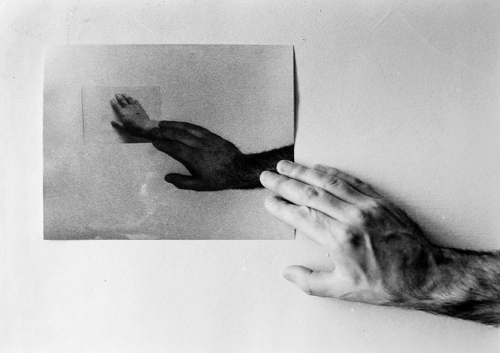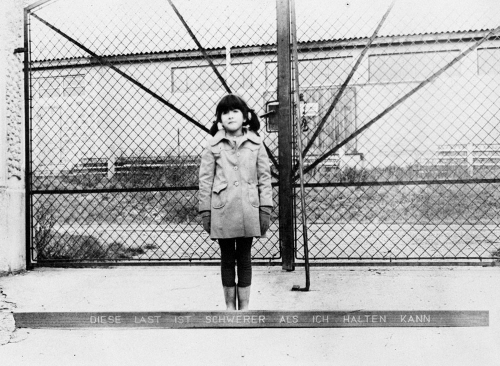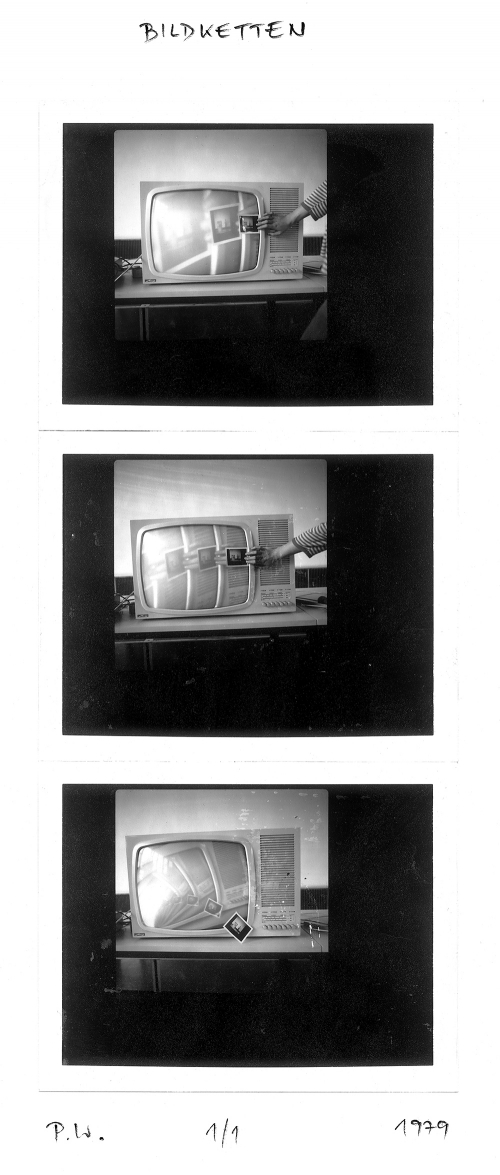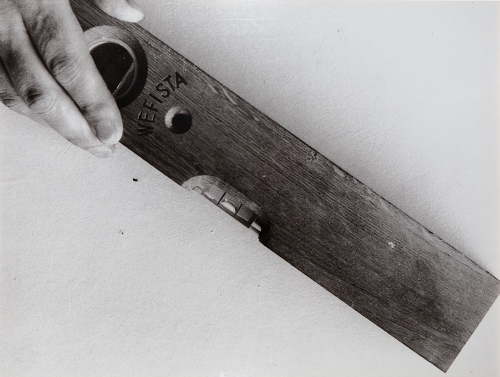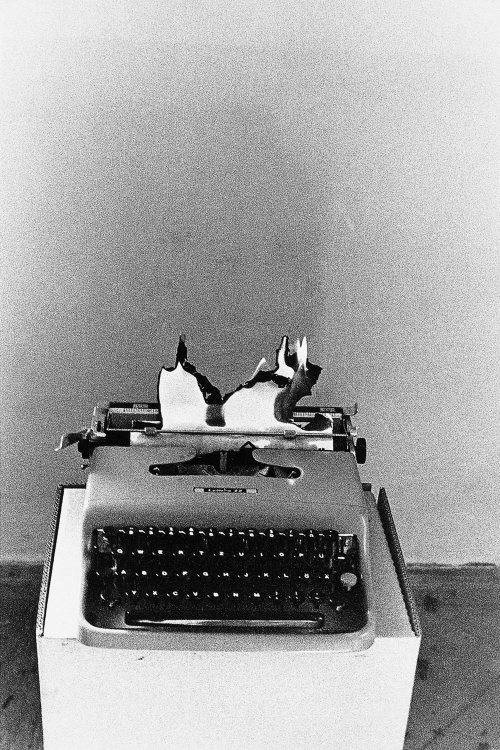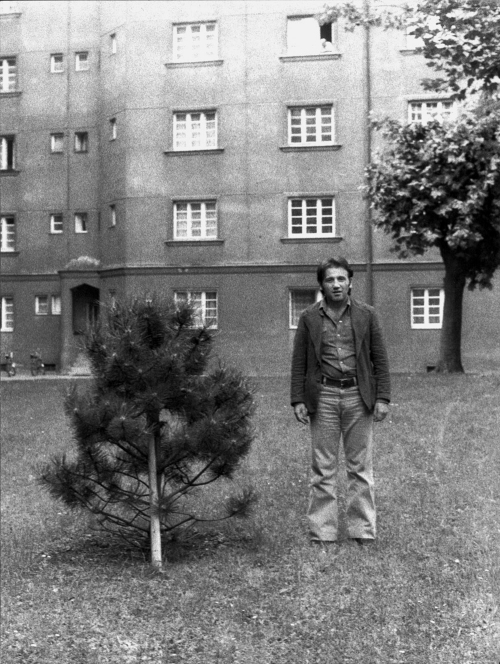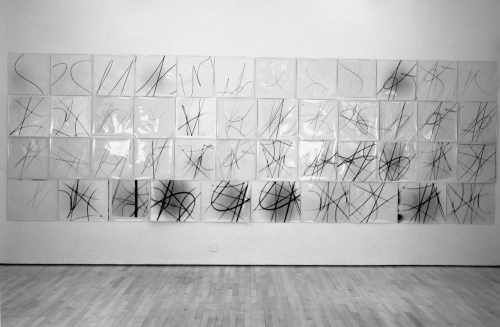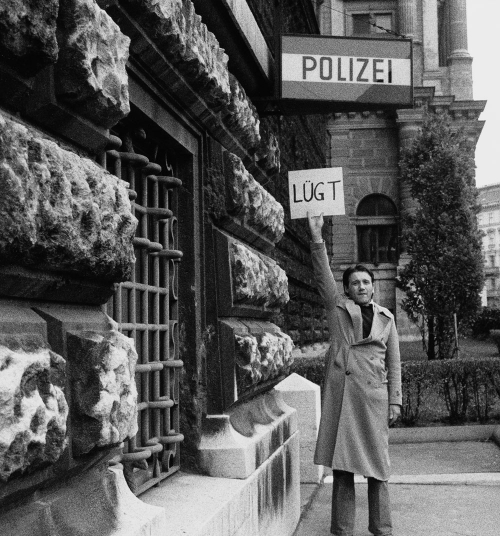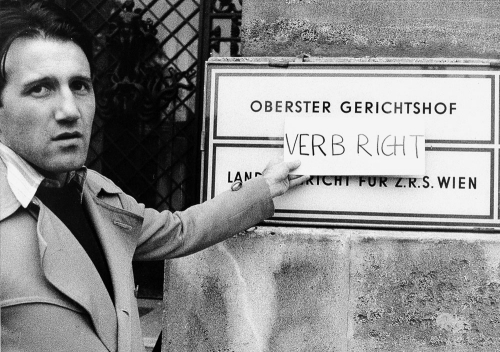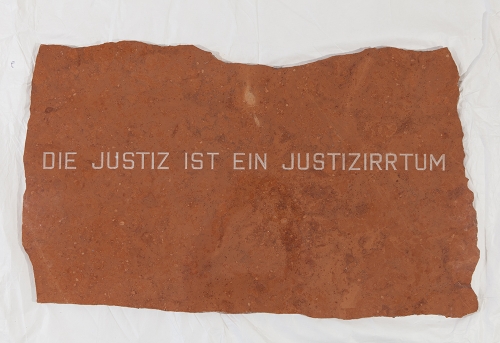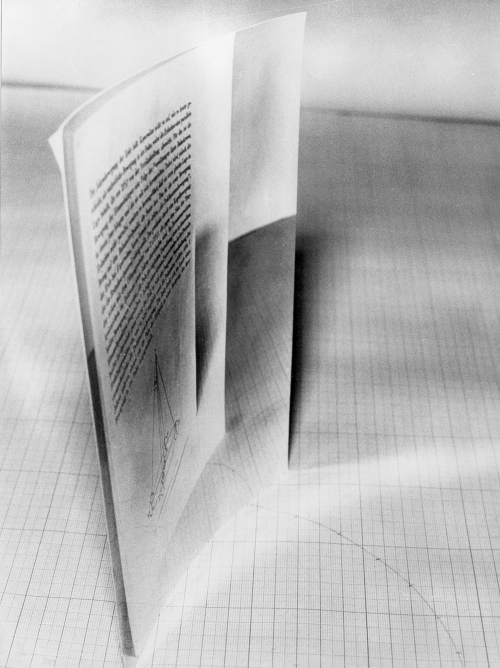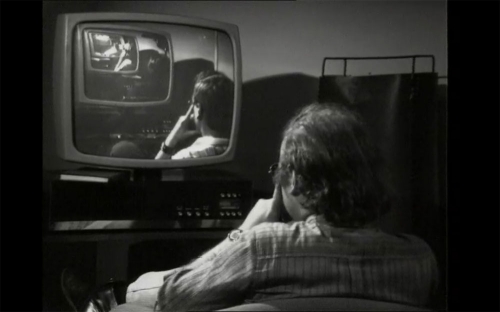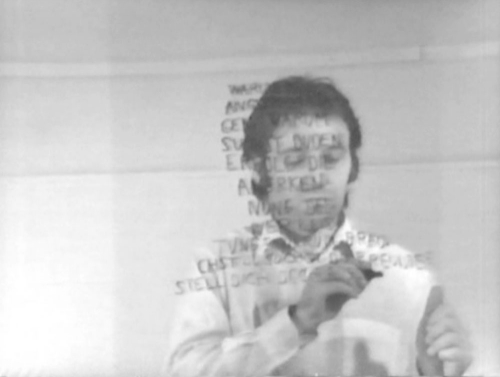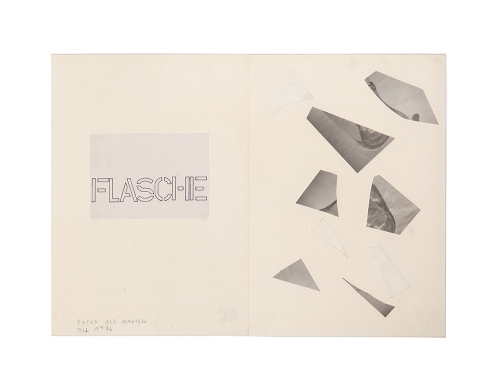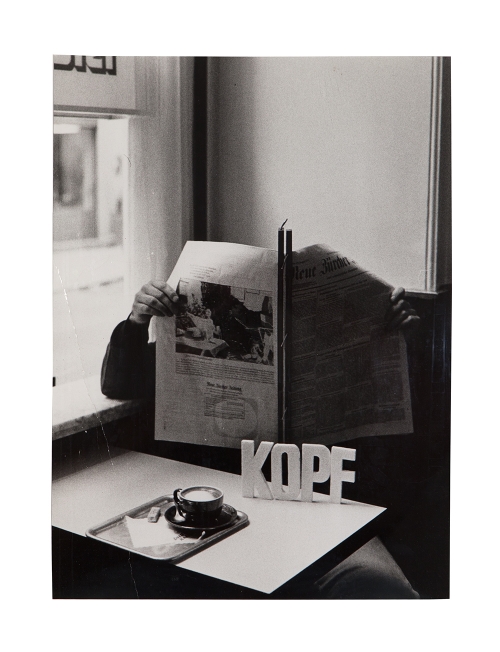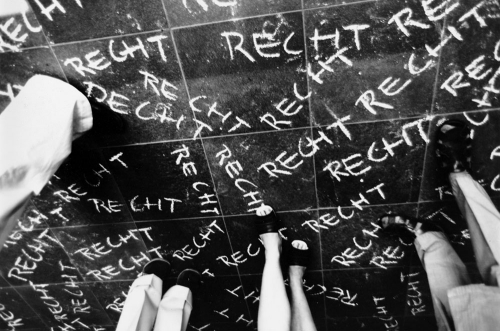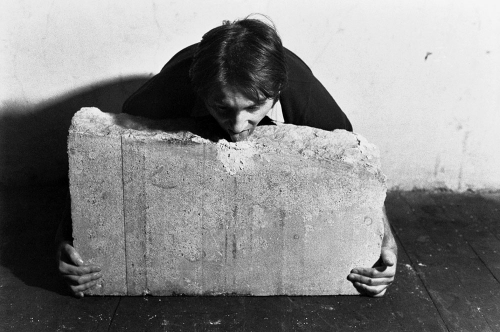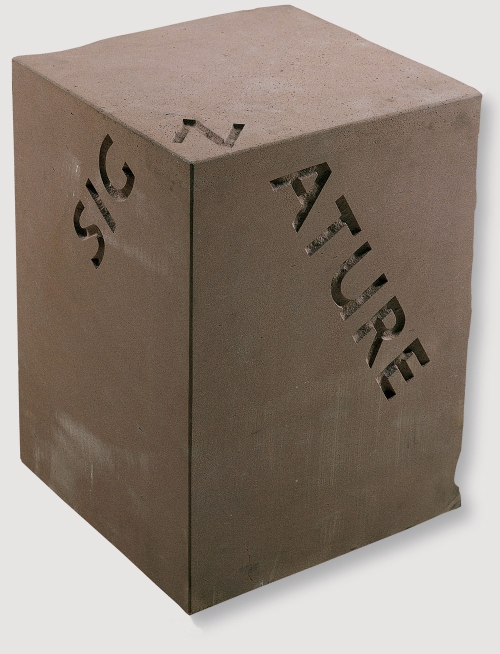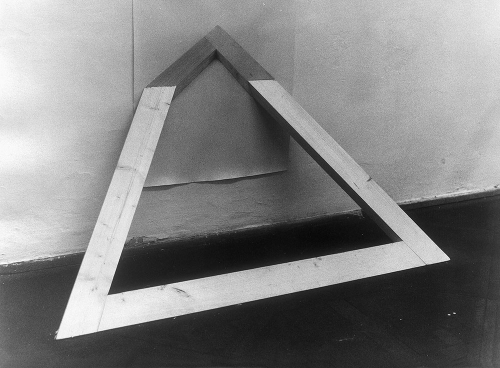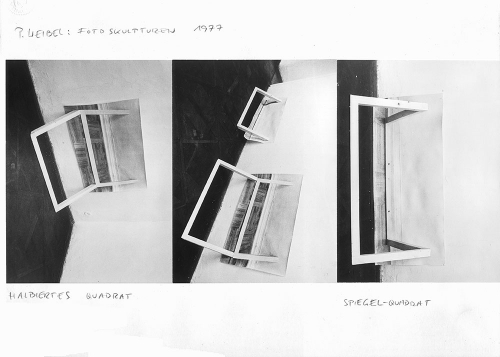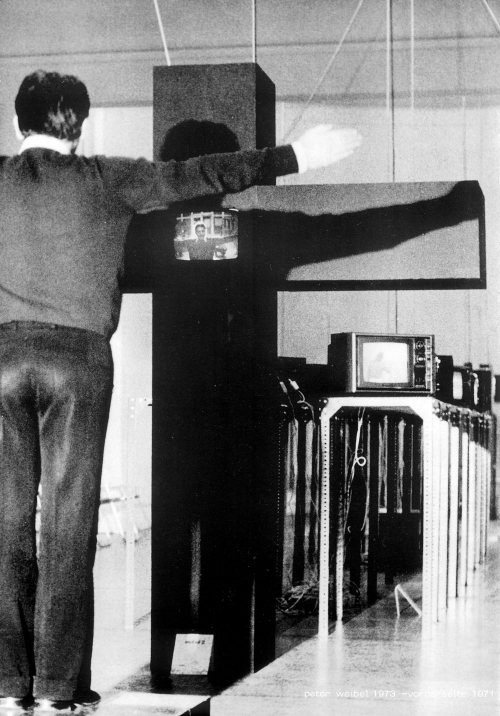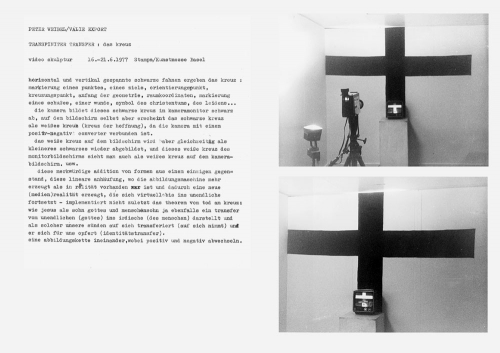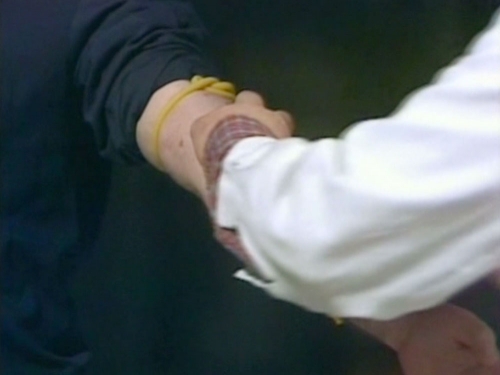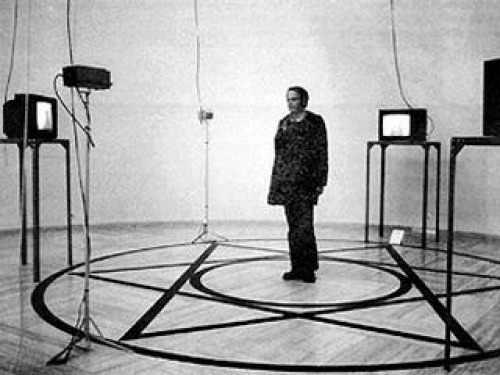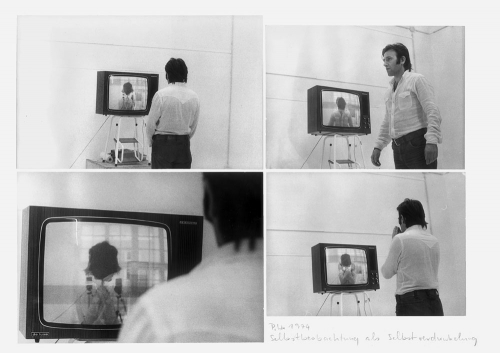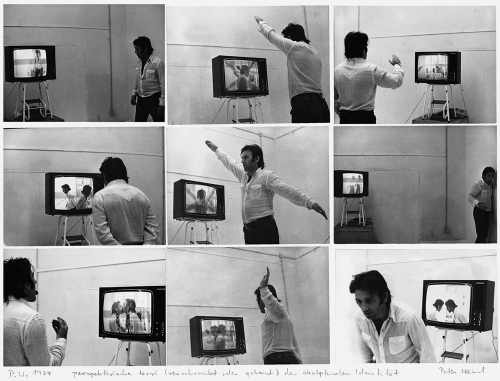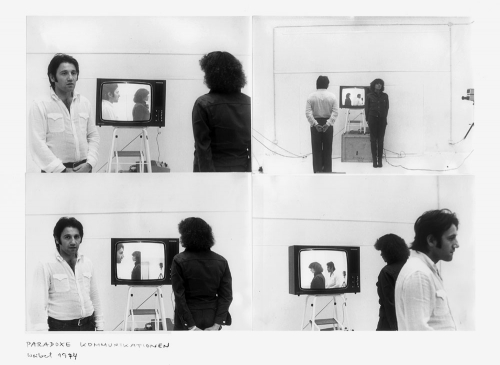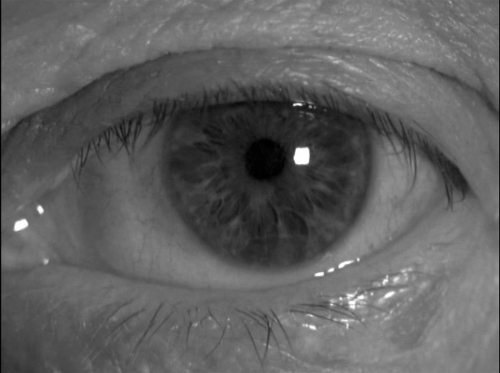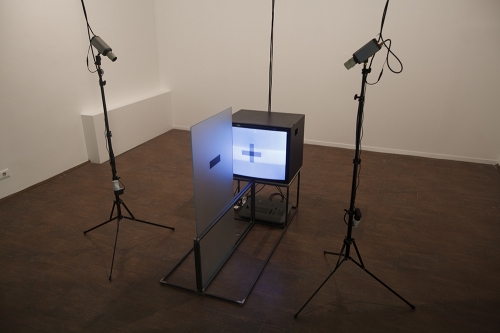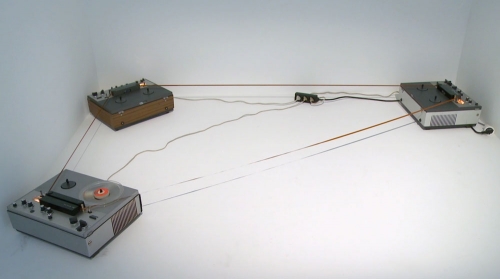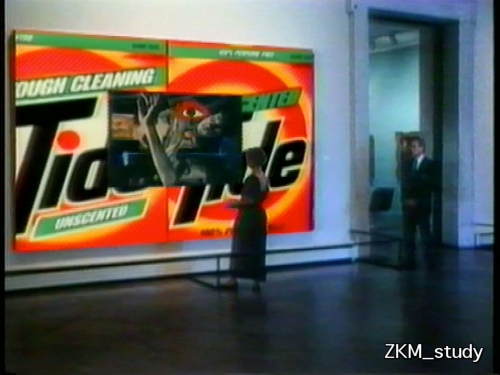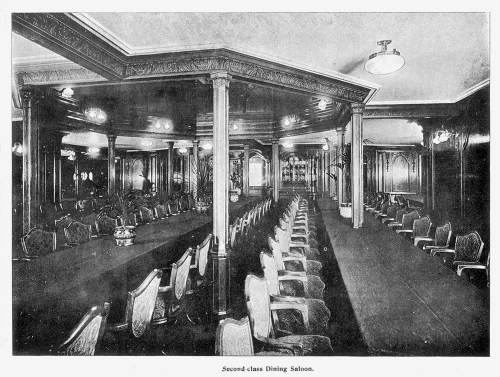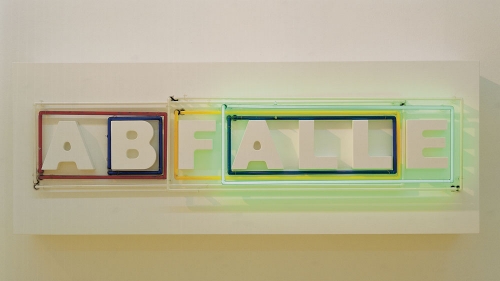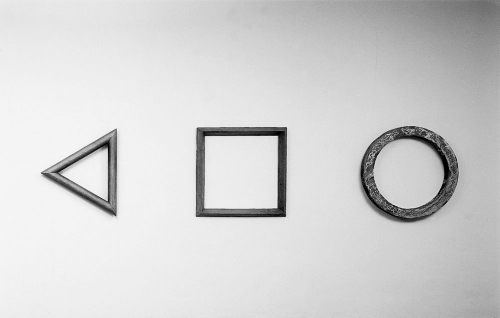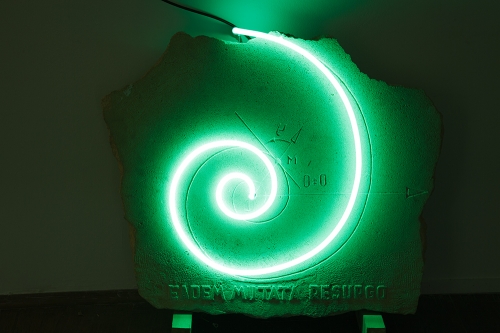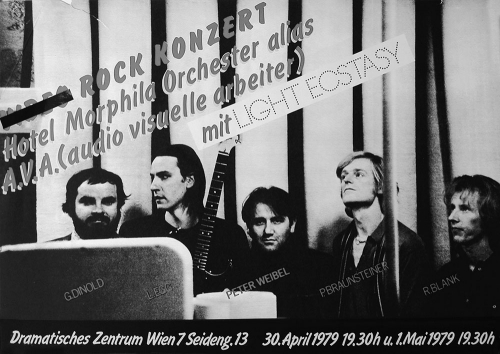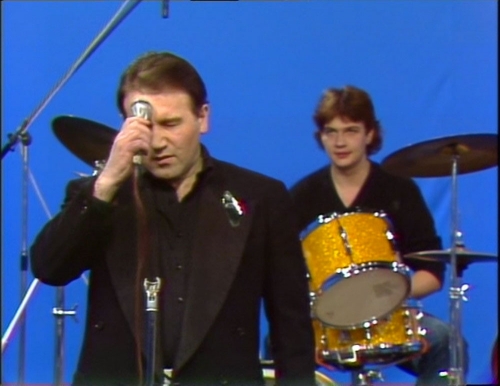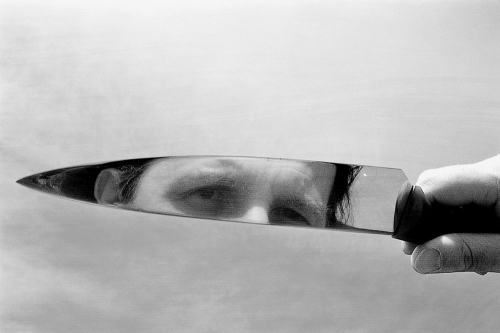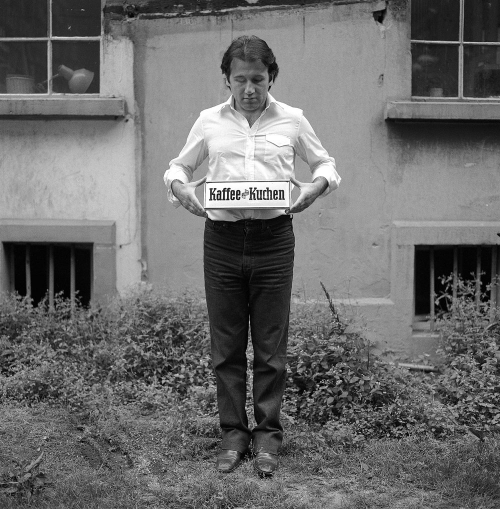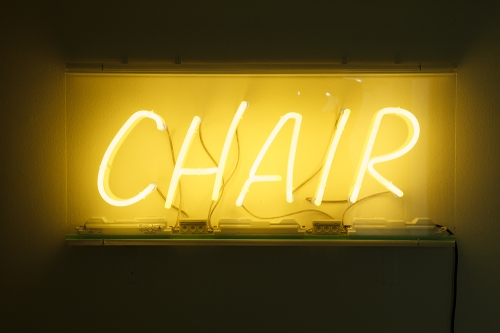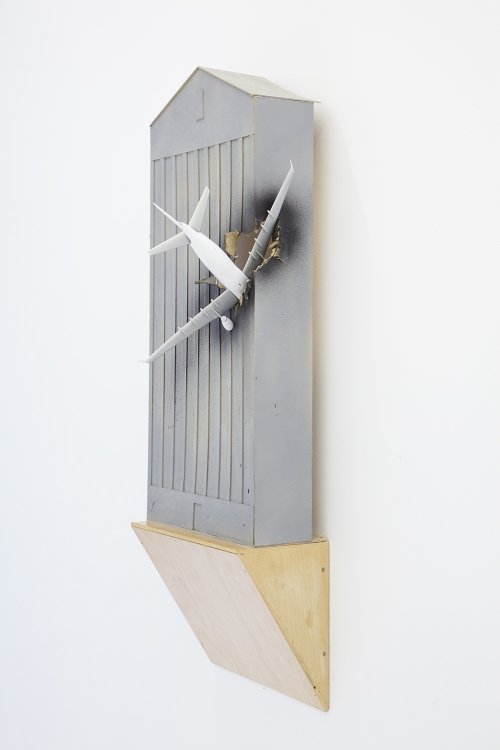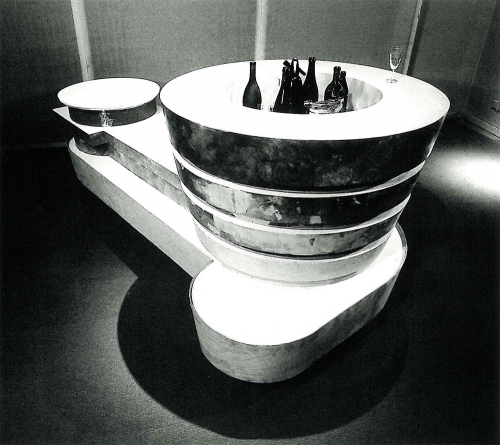Cryptic Message. 1969
Print on paper
Documentation of Peter Weibel’s and Franz Kaltenbäck’s action at Gothenburg Museum of Art. The artists used the public building as a private musical instrument, producing sounds by hitting the glass walls of the building with axes, hammers and rocks. When police arrived, the artists fled.
‘It was done without any audience. Normally, actions are performed by artists in front of an audience. We wanted to negate this bourgeois attitude and go a step further than the Vienna body artists who performed in bourgeois galleries for a bourgeois public. Two years later I documented this action in my book «Vienna. Viennese actionism and film». At that time I had very few readers, but very loyal and attentive readers who read everything I published: four policemen and two judges. And they discovered the action in Gothenburg. For them it was not an artwork, but what the law calls malicious damage to property. The police wrote to the museum and the director wrote back: for them it was too late to investigate this case. The damage had been repaired and they didn’t care any more. But the police found another way to punish me and Kaltenbäck. The law says: ‘The behaviour of a citizen of Austria, even in a foreign country, is judged according to Austrian law’. In court we denied that we had the intention to break the glass windows. But there is a law, according to which, if we could have calculated that the glass could accidentally break, we could be convicted. But I had a lot of experience with my law suits and when the judge asked me, very casually, ‘didn’t you think that something could go wrong and that the glass could break?’ I smelled the trap and said strictly and firmly: ‘By no means and grounded on all possible scientific calculation, could I expect that the glass will break’. Unfortunately, my colleague Kaltenbäck was less experienced and when asked the same question, he innocently said ‘yes’. So he was condemned. So again, you see, the judicial system: Two artists have been accused of exactly the same deed. One was condemned and the other one was set free. Naturally, this incident burdened the friendship between Kaltenbäck and me for a while. He was sour that he alone was condemned for the action we both were responsible for’.
